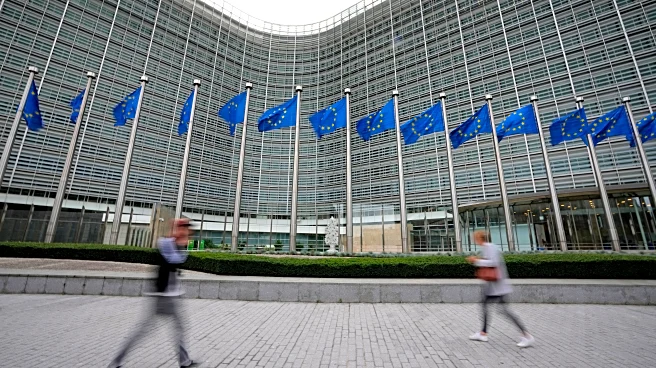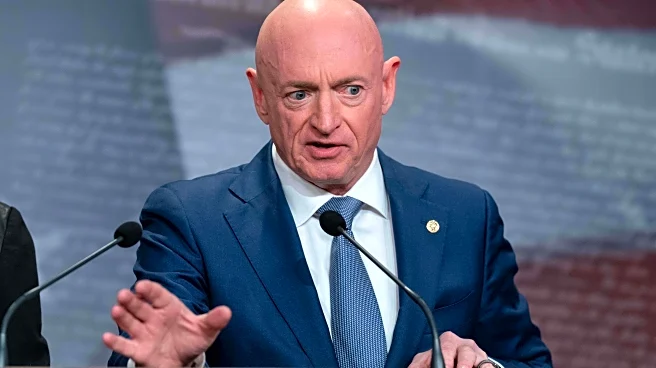What's Happening?
Booking.com has released its travel predictions for 2026, highlighting a shift towards more personalized and immersive travel experiences. The report, based on insights from over 29,000 travelers across 33 countries, suggests that travelers will increasingly
seek vacations that reflect their individual identities and passions. Key trends include 'romantasy retreats' inspired by fantasy worlds, humanoid homes with robotic enhancements, and glow-cations focused on personalized skincare treatments. The study also indicates a growing interest in travel that tests relationship compatibility, with many travelers using vacations as a means to assess personal and professional connections. Additionally, technology is expected to play a significant role in facilitating these personalized experiences, with AI-powered suggestions and futuristic vacation rentals becoming more prevalent.
Why It's Important?
The shift towards individualized travel experiences reflects broader societal trends where consumers are seeking more meaningful and personalized interactions. This evolution in travel preferences could have significant implications for the tourism industry, prompting businesses to innovate and offer more tailored services. The emphasis on technology-driven personalization may lead to increased investment in AI and smart home technologies within the hospitality sector. Furthermore, the focus on immersive and experiential travel could drive demand for niche markets, such as fantasy-themed retreats and wellness-focused vacations. As travelers prioritize unique experiences, destinations that can offer these personalized journeys may see a boost in tourism, impacting local economies and cultural exchanges.
What's Next?
As these trends gain traction, travel companies and destinations may need to adapt their offerings to cater to the growing demand for personalized and immersive experiences. This could involve developing new partnerships with tech companies to enhance vacation rentals with smart technologies or creating themed travel packages that align with popular cultural narratives. Additionally, the industry might see an increase in marketing efforts targeting specific demographics, such as Gen Z travelers who are particularly open to experimental travel experiences. The integration of AI in travel planning could also lead to more efficient and customized itineraries, potentially reshaping how travelers approach vacation planning.
Beyond the Headlines
The rise of personalized travel experiences raises questions about privacy and data security, as travelers increasingly rely on technology to tailor their journeys. Ethical considerations around the use of AI and personal data in travel planning may become more prominent, necessitating transparent practices and robust security measures. Moreover, the focus on individuality and niche interests could lead to a diversification of travel offerings, challenging traditional tourism models and encouraging cultural exchange through unique experiences. As travelers seek deeper connections with destinations, there may be a renewed emphasis on sustainable and responsible tourism practices.















